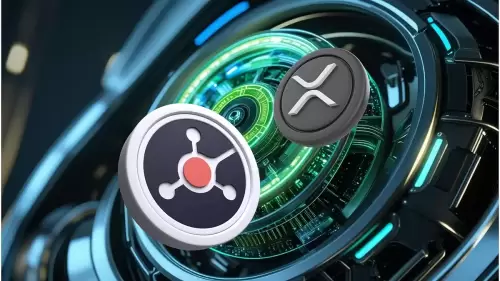 |
|
 |
|
 |
|
 |
|
 |
|
 |
|
 |
|
 |
|
 |
|
 |
|
 |
|
 |
|
 |
|
 |
|
 |
|

Author: Jiawei @IOSG
Grayscale wrote a research report on DePIN at the beginning of this year. The table above shows the top DePIN projects and their market value. Since 2022, DePIN and AI have been mentioned as two new directions for Crypto investment. However, there seems to be no iconic project in the DePIN field. (Helium is considered a top project, but Helium appeared even earlier than the concept of DePIN; Bittensor, Render, and Akash in the table are more classified as AI tracks)
It seems that DePIN does not have a strong enough leading project to open the ceiling of this track. The DePIN track may still have some Alpha in the next 1-3 years.
This article attempts to sort out the investment logic of DePIN from scratch, including why DePIN is an investment track worthy of our attention, and proposes a simple analysis framework. Since DePIN is a comprehensive concept covering many diverse sub-tracks, this article will zoom out a little and explain the concept from an abstract perspective, but will still give some specific examples.
Why pay attention to DePIN investment
DePIN is not a buzz word
First of all, it is important to make it clear that decentralizing the infrastructure of the physical world is not a fancy idea, nor is it just a simple "narrative play", but it can be implemented. In DePIN, there are indeed scenarios where decentralization can "enable" something or "optimize" something.
Here are two simple examples:
In the telecommunications field, a major track in DePIN, taking the US market as an example, traditional communication operators (such as AT&T and T-Mobile) often need to invest billions of dollars in spectrum license auctions and base station deployment, and then pay $200,000 to $500,000 in deployment costs for each macro base station with a coverage radius of 1-3 kilometers. In an auction of 5G spectrum in the 3.45GHz band by the Federal Communications Commission (FCC) in 2022, AT&T invested $9 billion, becoming the operator with the highest investment. This centralized infrastructure model leads to high prices for communication services.
Helium Mobile, through community crowdsourcing, spreads this early cost to each user. Individuals only need to purchase a hotspot device for $249 or $499 to access the network and become a "micro-operator". Through token incentives, the community can spontaneously build a network, thereby reducing overall investment. The cost of deploying a macro base station for Verizon is about $200,000, while Helium can achieve similar coverage by deploying about 100 hotspot devices (total cost of about $50,000), reducing costs by about 75%.
In addition, in the field of AI data, traditional AI companies need to pay up to $300 million per year in API fees to platforms such as Reddit and Twitter to obtain training data, and crawl data with the help of Bright Data (residential agent) and Oxylabs (data center agent). Not only that, they are also facing more and more copyright and technical restrictions, and the compliance and diversity of data sources are difficult to guarantee.
Grass has solved this dilemma through distributed Web Scraping, allowing users to share idle bandwidth by downloading browser extensions, helping to crawl public web page data and receive token rewards from it. This model greatly reduces the AI companies' data acquisition costs while achieving data diversity and geographical distribution. According to Grass statistics, there are currently 109,755,404 IP addresses from 190 countries participating in the network, contributing an average of 1,000 TB of Internet data per day.
In summary, the basic starting point for investing in DePIN is that decentralized physical infrastructure has the opportunity to do better than traditional physical infrastructure, and even do things that traditional methods cannot do.
As the intersection of Infra and Consumer
As the two main lines of Crypto investment, Infra and Consumer each face some problems.
Infra projects generally have two characteristics: First, they are very technical. For example, technologies such as ZK, FHE, and MPC have very high barriers to entry, and there is a certain disconnect in market perception. Second, except for the familiar Layer1/2, cross-chain bridges, pledges and other projects that can directly reach end users, most Infra are actually toB. For example, developer tools, data availability layers, oracles, coprocessors, etc. are relatively far away from users.
These two points make it difficult for Infra projects to promote users’ mindshare and have poor dissemination. Although high-quality Infra has a certain PMF and income and can be self-sufficient through the cycle, in a market where attention is scarce, the lack of mindshare makes it difficult for listing in the later
Disclaimer:info@kdj.com
The information provided is not trading advice. kdj.com does not assume any responsibility for any investments made based on the information provided in this article. Cryptocurrencies are highly volatile and it is highly recommended that you invest with caution after thorough research!
If you believe that the content used on this website infringes your copyright, please contact us immediately (info@kdj.com) and we will delete it promptly.



























































